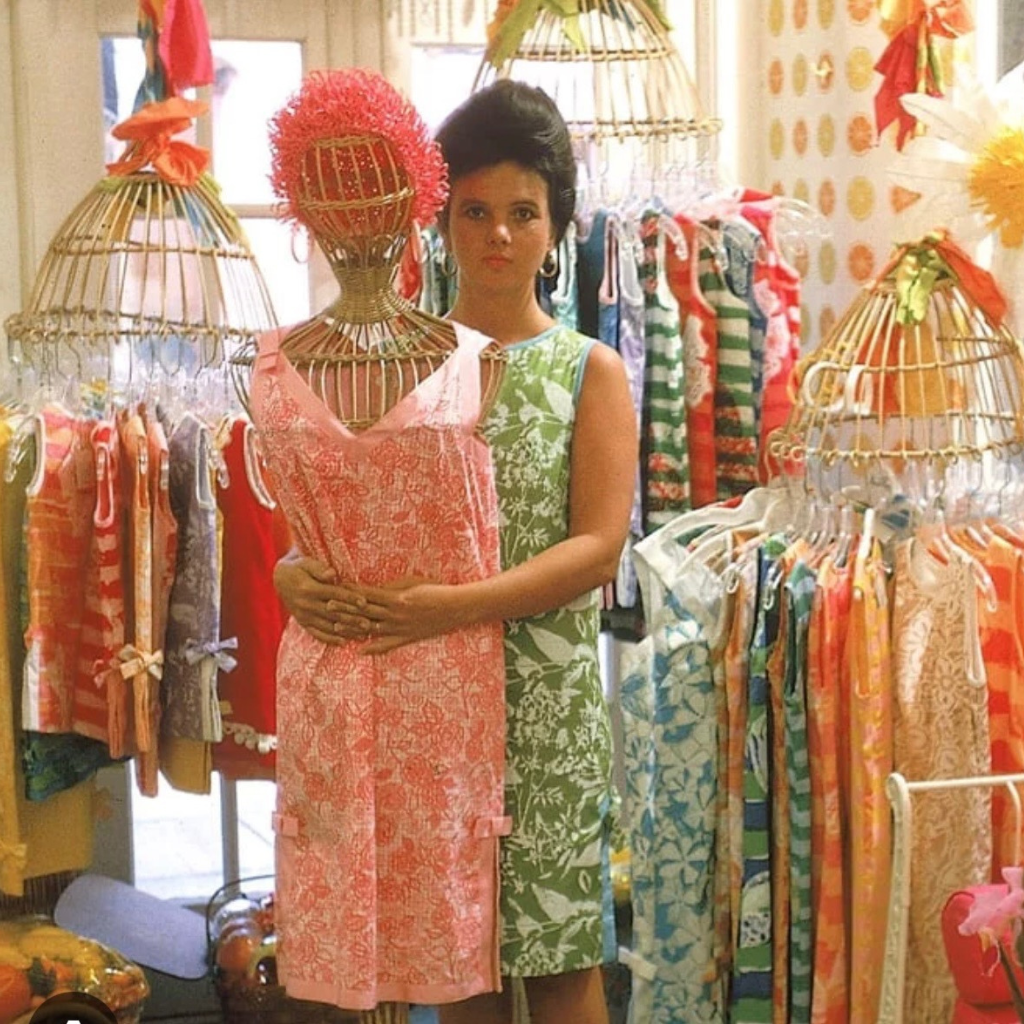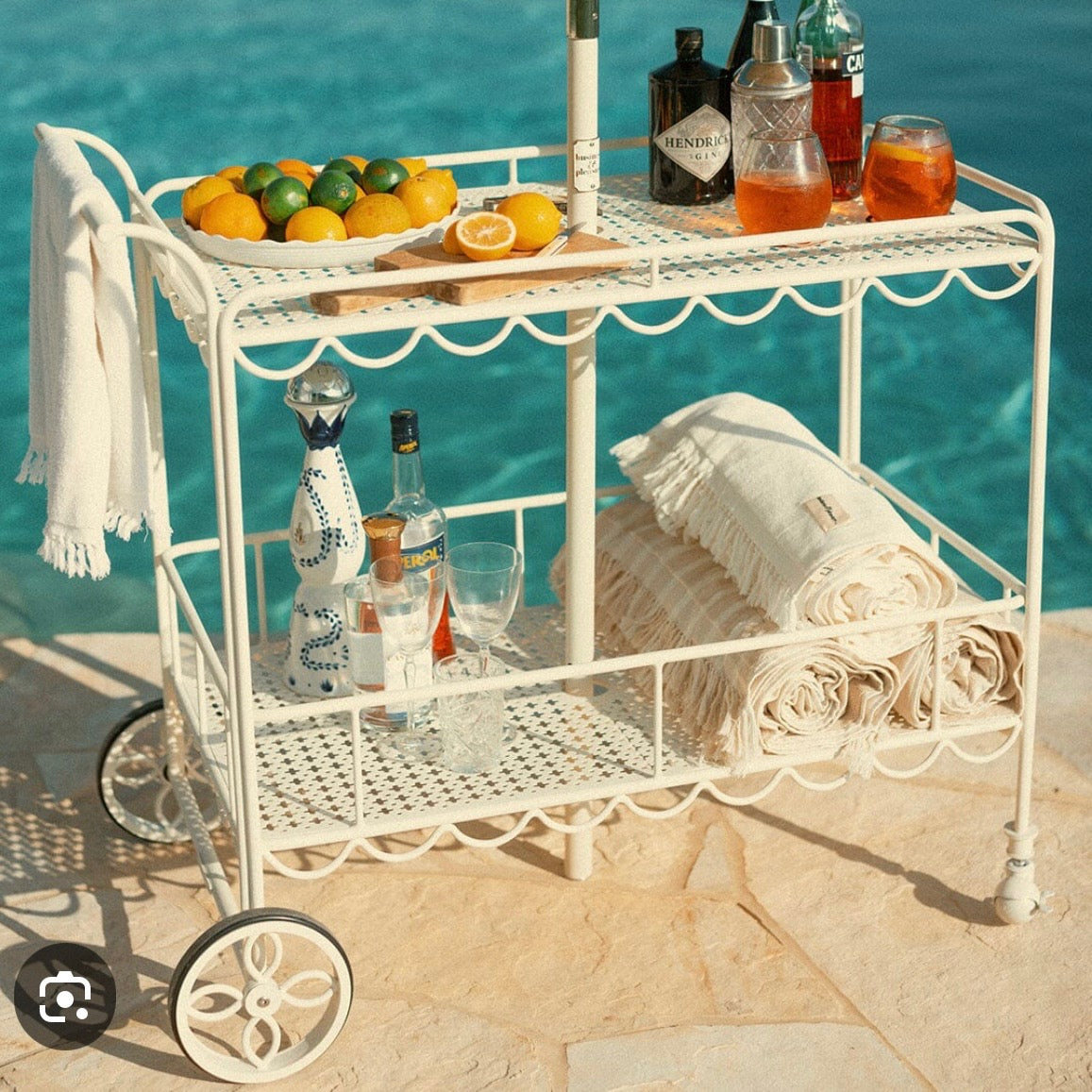Hostess aprons are a 1950s phenomenon, originating as decorative "party aprons" worn over a nicer dress to signify a woman's role in entertaining and social status, the "perfect housewife" ideal of the era.
Lillian Pulitzer founded Lilly Pulitzer's fashion brand in the late 1950s. It all started from a juice stand in Palm Beach, Florida. Her dresses were created to camouflage the fruit stains on her outfits. They gained popularity among socialites, including Jacqueline Kennedy Onassis, and eventually became an iconic style known for its bright colors and "always summer" attitude.
Hostess aprons are a 1950s phenomenon, originating as decorative "party aprons" worn over a nicer dress to signify a woman's role in entertaining and social status, the "perfect housewife" ideal of the era.
Lillian Pulitzer founded Lilly Pulitzer's fashion brand in the late 1950s. It all started from a juice stand in Palm Beach, Florida. Her dresses were created to camouflage the fruit stains on her outfits. They gained popularity among socialites, including Jacqueline Kennedy Onassis, and eventually became an iconic style known for its bright colors and "always summer" attitude.




